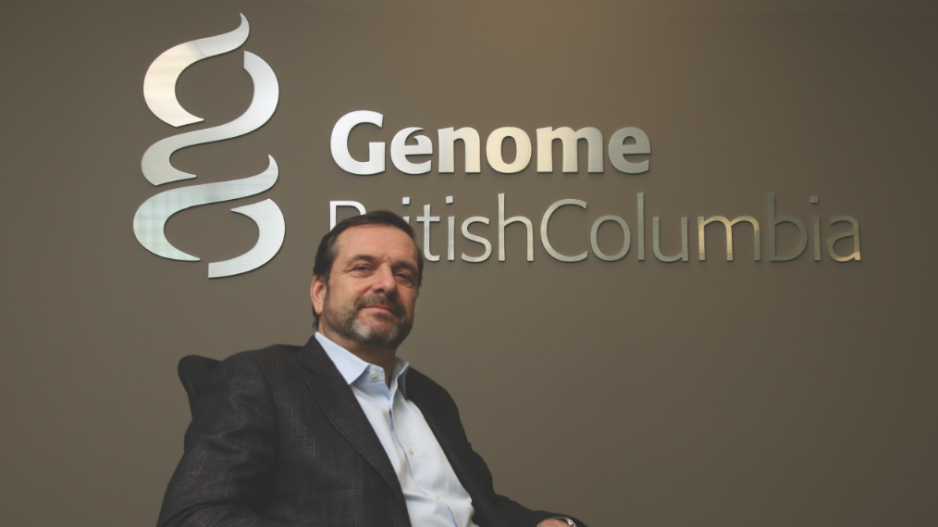Rob McIntyre thinks of himself as a “picks and shovels” sort of businessman.
While entrepreneurs spent years bounding for the gold rush known as cannabis legalization, which took place last October, the CEO of Salvation Botanicals is hoping to tap into a second wave of business when edibles become legal later this year.
McIntyre’s chosen picks and shovels in this gold rush are research and analytics services.
“We were one of the first testing labs,” McIntyre said, referring to Salvation Botanicals’ Nanaimo-based subsidiary, Salvation BioScience.
“We’re in the sector of the market that is now the sweet, sweet spot. People have sort of moved beyond the LP [licensed producer] as the place to put their money.”
His firm specializes in working with micro-cultivators and LPs to accurately, and independently, test cannabis products for everything from purity to potency.
Salvation can also perform extraction and processing services, as well as packaging for craft growers looking to get their products into the regulated market.
It received its dealer’s licence in 2016 and cut its teeth working with patient growers during the period when only medical marijuana was legalized.
McIntyre, who served as chief financial officer for Salvation before getting the nod as CEO, said the goal now is to take the company public by this summer.
The timing is significant as the federal government plans to make edible cannabis products legal in October, and McIntyre anticipates a second wave of investor interest in companies that can offer testing services.
“As we get into the more extracted products, the edibles, the high-potency smoking oils, vape juices, there’s going to be more and more requirement for testing,” McIntyre said. “The [legalization of] edibles brings a whole new dynamic and complexity to analytical testing. Under our dealer’s licence, we’ve been able to do the research and to get the methods validated ahead of the game.”
Meanwhile, Canadian-based research into cannabis has an inherent advantage that doesn’t seem poised to vanish for the foreseeable future.
The substance’s precarious legal status south of the border, where it is permitted in some states but banned on a federal level, might seem the most obvious leg-up for Canadian companies.
But it also comes down to who manages research into medicinal cannabis in the U.S., said Genome BC CEO Pascal Spothelfer.
The U.S. National Institute on Drug Abuse controls which plants researchers may work on if they receive federal funding, whereas there is no similar counterpart in Canada.
“These plants [in the U.S.] are not representative at all of what’s out there and being consumed, and are of very bad quality,” Spothelfer said.
“That’s a problem we don’t have in Canada because the plants have been medically available for quite a while.”
Spothelfer’s non-profit organization might best be known for facilitating advances in genetic research, sequencing the genes of everything from Pacific salmon to B.C. pine trees.
By mapping and studying the DNA of organisms through genomics, scientists can better target genes and understand how an organism functions.
Cannabis is “being sold with the fancy names, but actually it’s very badly characterized, and genomics allows [researchers] to differentiate very precisely between the various strains and then to characterize what these various strains do,” Spothelfer said.
“With cannabis, it’s totally unclear how strong or how weak [a strain is], and what the relationship is between the cannabinoids or the THC, etc. And doing this characterization increases product safety and understanding of the product itself.”
Genome BC works with researchers, businesses and policy-makers on everything from securing funding for research to applying genomics to commercial uses.
The organization provided debt financing to Anandia Labs Inc., a startup based at the University of British Columbia, specializing in using genomics for testing and breeding in cannabis production.
The support paid off.
Aurora Cannabis Inc. (TSX: ACB), one of the global giants of the industry, acquired Anandia last year in a deal valued at $115 million.
“Cannabis having been an illegal, controlled substance for so long, there’s actually been very little research done on what has become a high-value crop,” said Spothelfer.
Chris Wagner, former CEO of Emerald Health Therapeutics, which grows cannabis and conducts scientific research, agreed. He said last year, while on a panel at an event hosted by Business in Vancouver Media Group, that Canadian scientists are in the nascent stages of cannabis research – a time that he compared to the early days of pop music.
Research is now being conducted on the effects of having different combinations of the 113 identified cannabinoids in a way that could be equated to the early days of pop music, when there were multitudes of chord sequences, or hooks, yet to be fully developed into hit singles.




